Topic: Architectural Fashion: AI & 3D Printing
Date: July 26 – 27, 2025
Time: 14:00 – 18:00 GMT
Format: Online on Zoom
Duration: 2 Sessions (8 Hours)
Registration Deadline: July 25th, 2025
Total Seats: 50 seats
Difficulty: Beginner-Intermediate
Language: English
Certificate: Yes
General Registration: 100 EUR
Join free: with Full Access membership
Fee For Digital Members: 85 EUR (15% discount available only for Digital Members)
Organized By: PAACADEMY
Tutor: Gareth Volka
Recordings: Recordings will be available for all participants afterward indefinitely.
Introduction to Architectural Fashion:
In this hands-on workshop, we’ll explore how generative AI and digital fabrication are reshaping the future of fashion. You’ll uncover essential workflows and gain insights into the creative and technical processes behind Gareth’s couture pieces, including pieces crafted from reaction-diffusion algorithms, precision-cut Aluminium metal, fluid 3D-printed gowns inspired by water, and modular assemblies that arise from customized GCode.
This workshop is your pathway to breaking into the fashion industry, including behind-the-scenes stories, preparing for runway showcases like the London Fashion Week, and turning experimental design into a sustainable career path.
By the end of this workshop, you will design your own wearable piece using computational design techniques. We’ll also print your work live during the class.
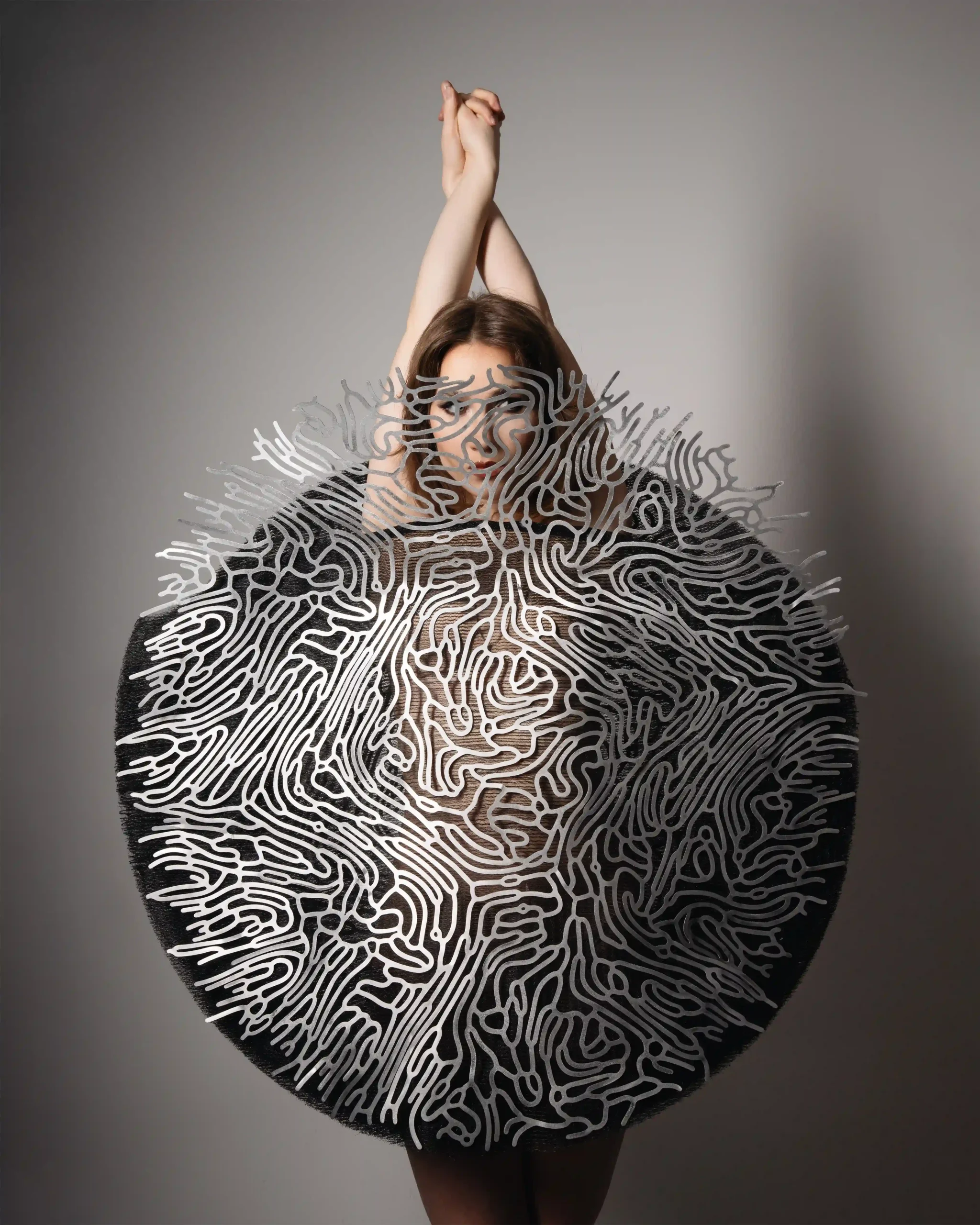
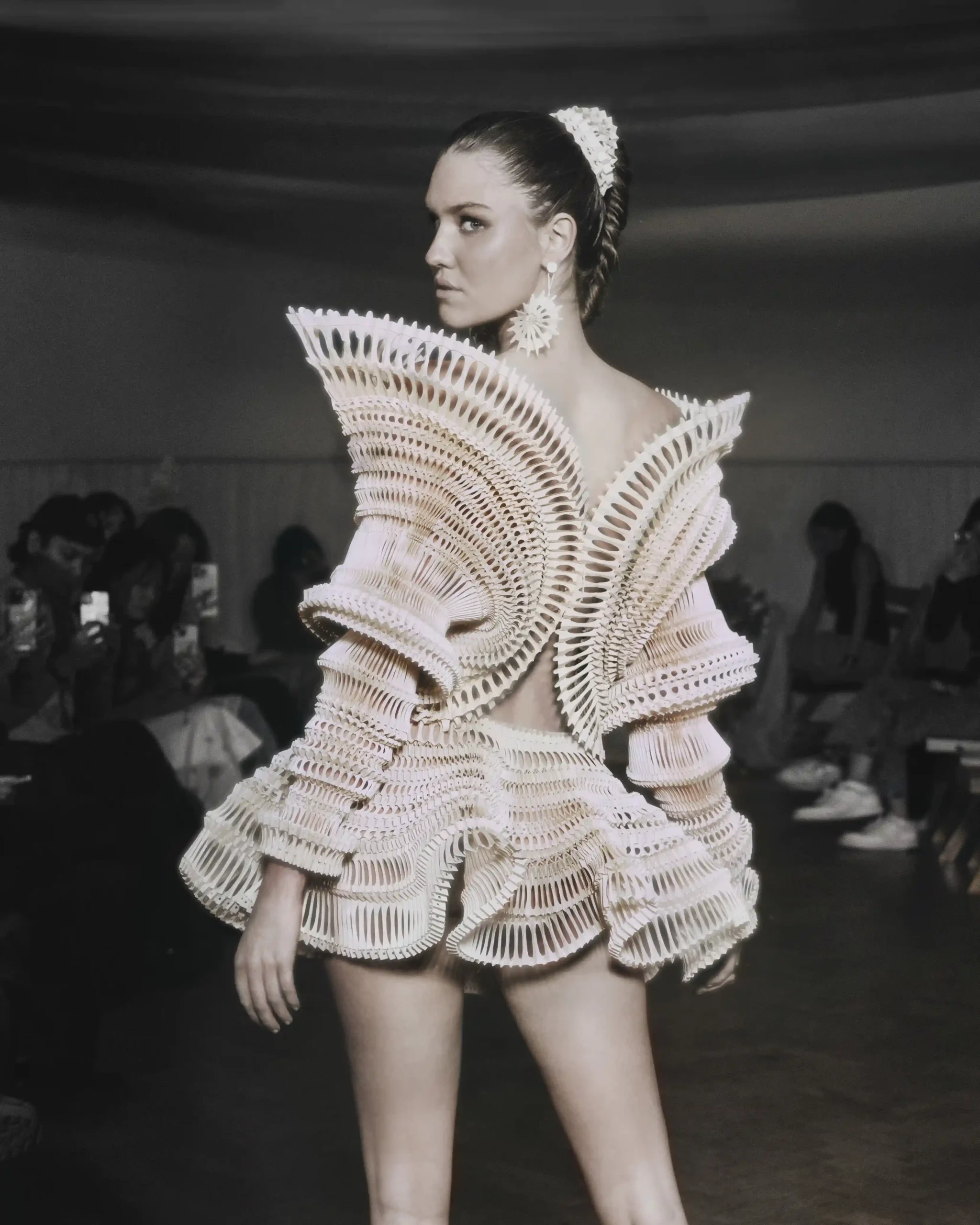
The Scope of Architectural Fashion:
This workshop explores how digital workflows can bridge the conceptual world of architecture with the expressive, material-focused domain of fashion. Over two days, the course takes a deep dive into the fusion of computational design, artificial intelligence, and digital fabrication to develop wearable structures that move beyond traditional fashion norms.
We begin by looking at how reaction-diffusion systems, patterns found in nature, can be used as design tools. Starting in Grasshopper, we’ll simulate these organic patterns using pre-written Python scripts that students can modify without prior coding experience.
These simulations act as the digital DNA of the Metal Dress, a wearable prototype born from algorithmic growth and realized through digital fabrication techniques.
The digital workflow continues with a look into the practicalities of production. Students are introduced to fabrication methods for both metal and 3D-printed textiles, learning about material constraints, equipment settings, and post-processing techniques.
On Day 2, the focus shifts to the 3D-Printed Dress, a modular, rippling structure built using fractals and custom G-code.
Students will see how customized toolpaths can be used to break open the traditional 3D printing pipeline and expose creative opportunities often overlooked.
We then pivot to artificial intelligence tools like Midjourney and Stable Diffusion, using them to generate conceptual imagery. These AI-generated visuals are not just mood boards, they become design data.
This workshop will teach you how to extract vector geometries from AI outputs, transforming them into NURBS-based structures ready for fabrication.
Students are encouraged to experiment, remix, and question each stage of the process. Whether producing intricate wearable sculptures or rethinking how AI can shape material aesthetics, the workshop invites participants to challenge the limits of what fashion can be when architecture, algorithms, and fabrication collide.
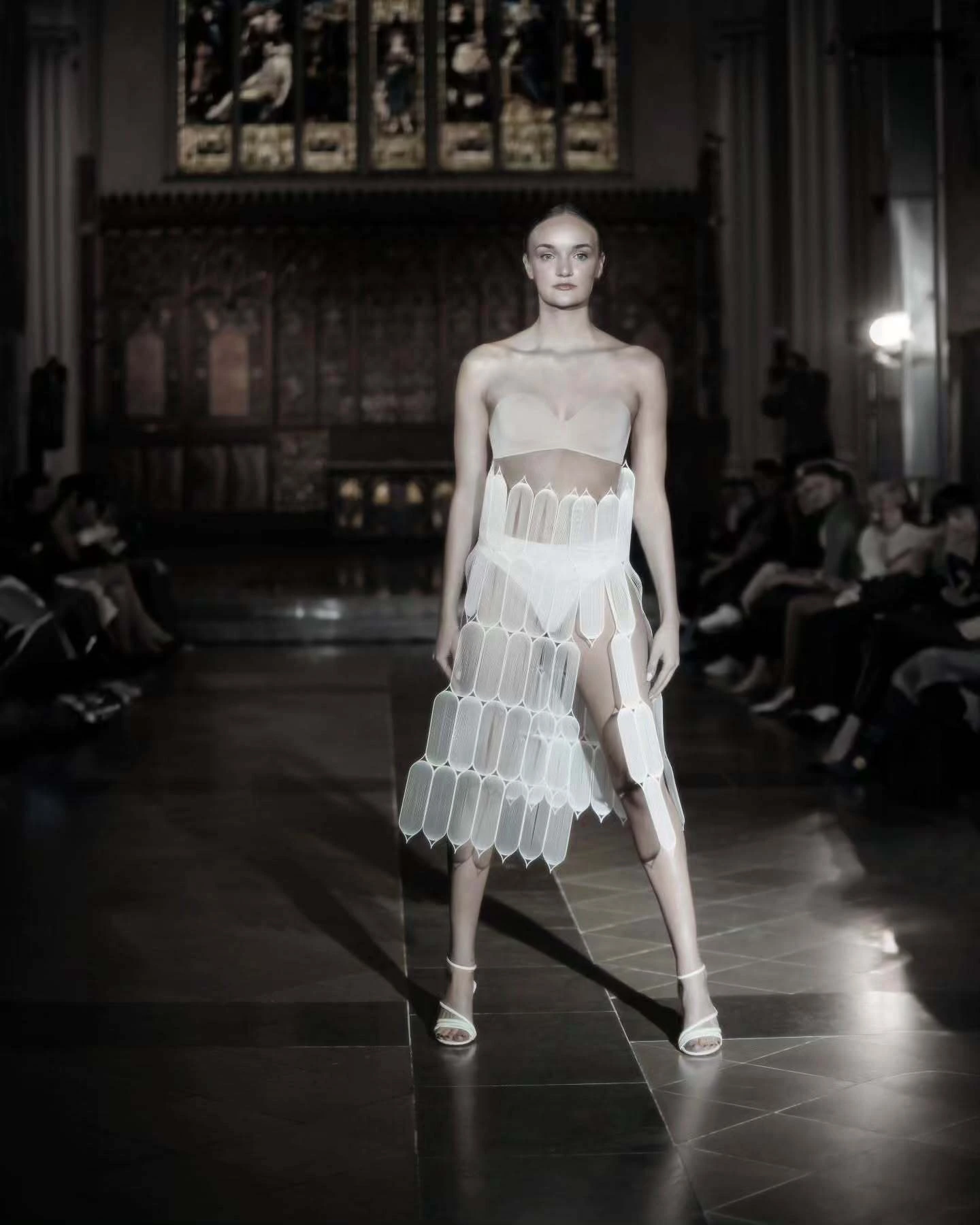
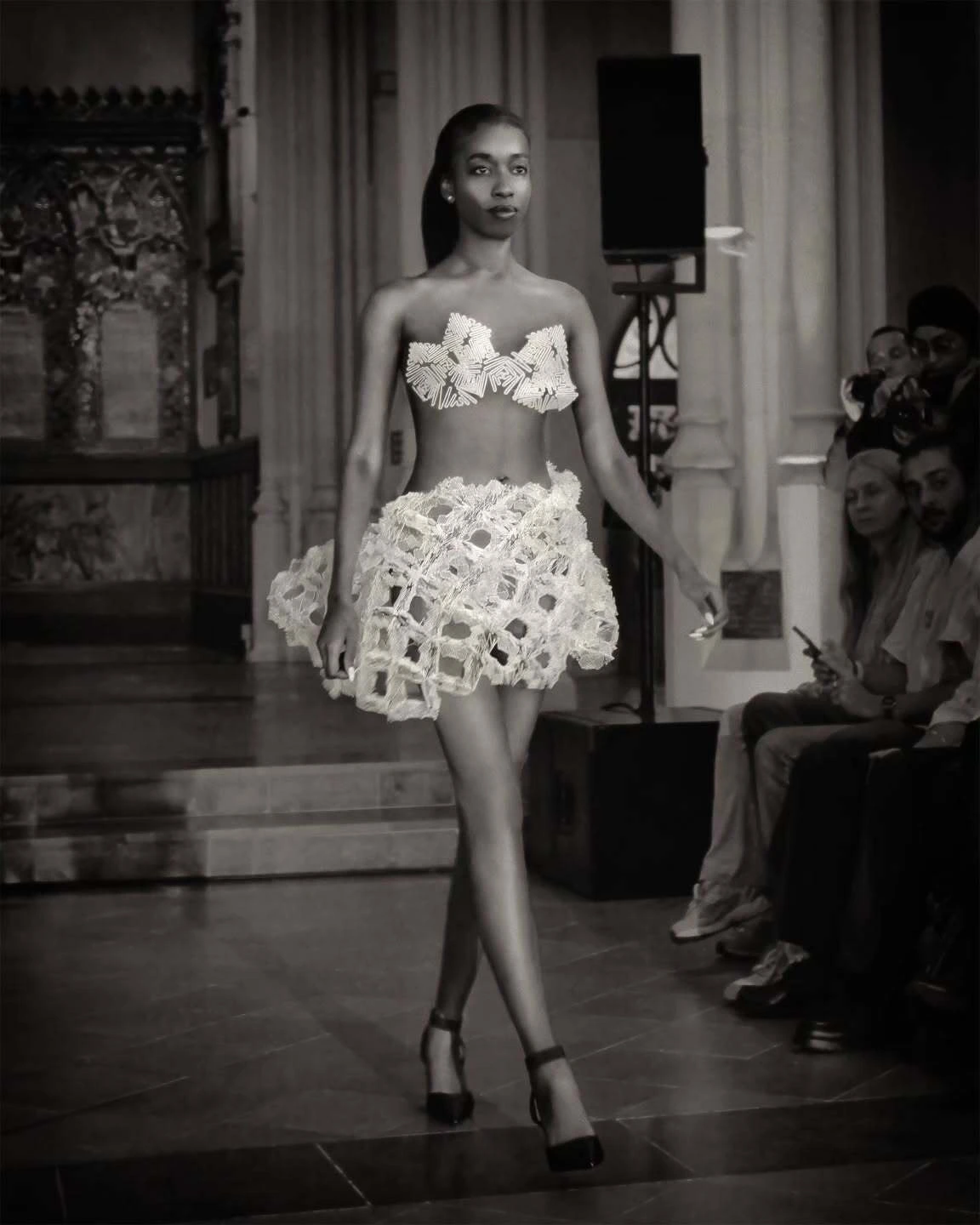
Key Learning Topics:
- Computational Design in Grasshopper: Explore Python-based algorithms such as Reaction-diffusion and other generative strategies.
- 3D Printing and Customized GCode: Tricks on Slicer Settings and customized GCode generation for perfect 3D prints.
- AI Integration for Fashion and Textile Design: Utilize image generators for pattern making.
- Fashion Industry 101: Discover runway and exhibition opportunities in fashion, such as celeb collaborations and London Fashion Week.
- Fashion Business 101: Various ways to promote and monetize your designs.
- Complete a Fashion Accessory Prototype: 3D print student work live in class.
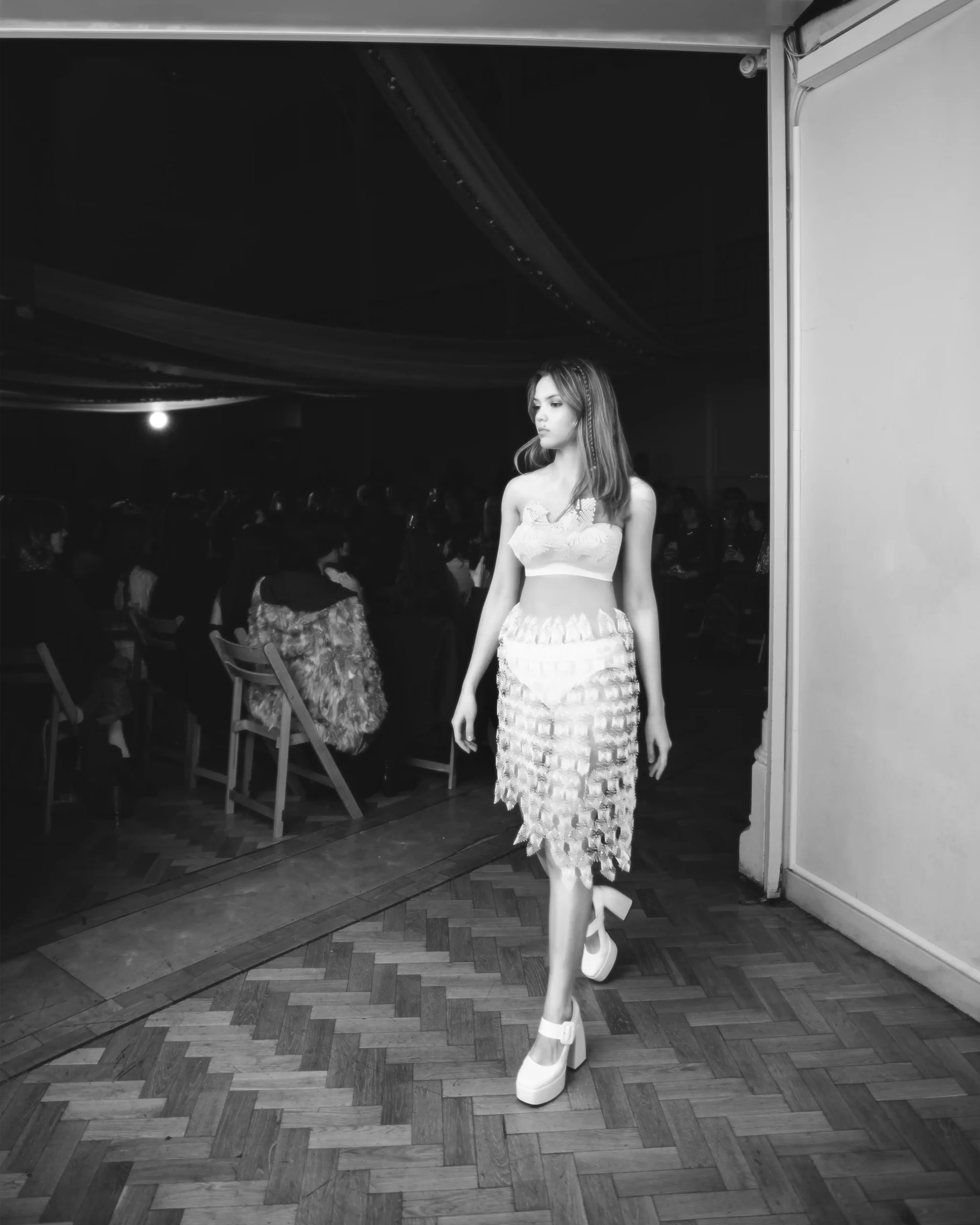
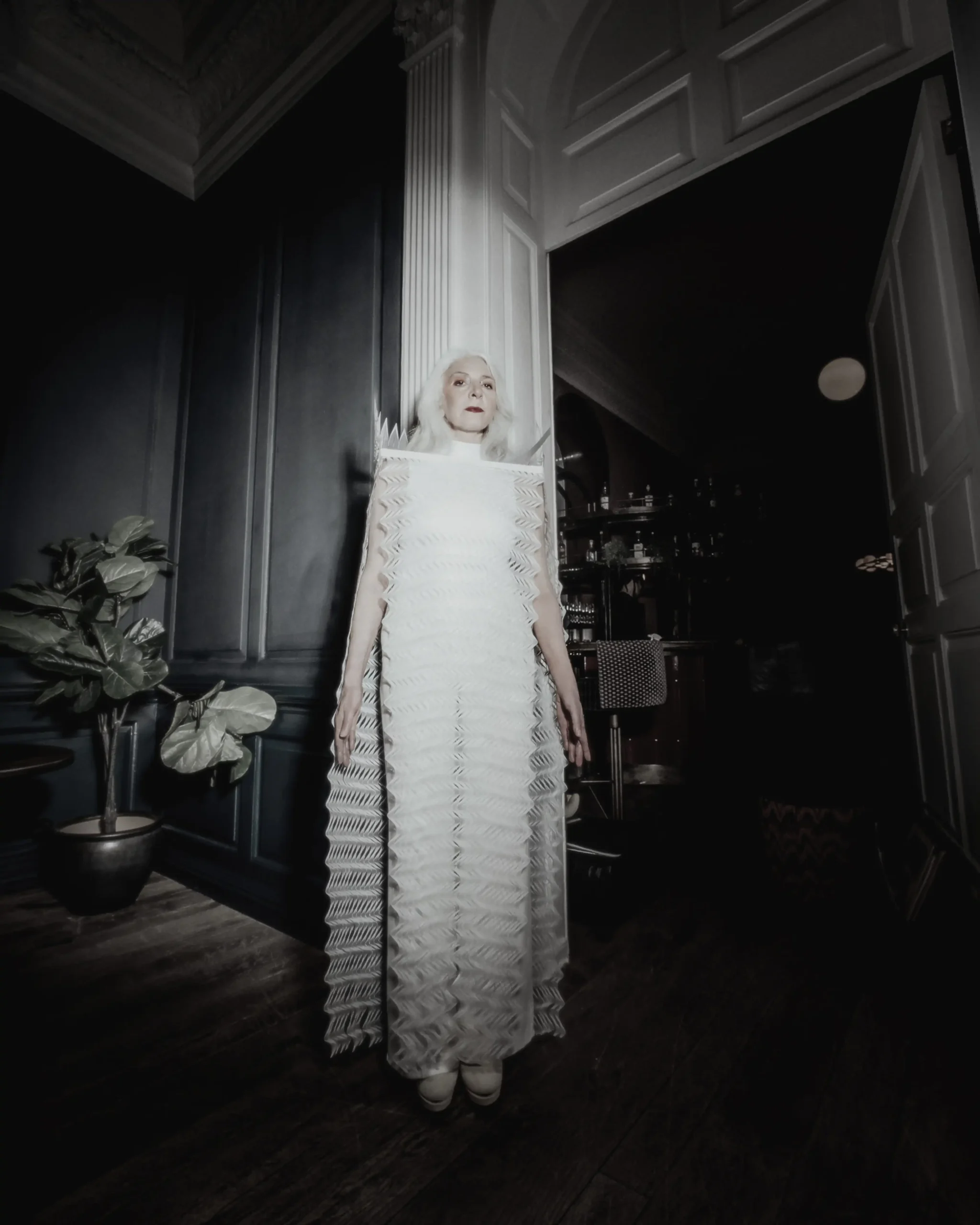
Program:
Introduction (Portfolio Presentation)
Architecture vs Fashion
- Student Introduction
Course Overview
- Metal Dress – Reaction Diffusion
- 3D-Printed Dress
- Digital Fabrication
- Fashion Industry
Metal Dress Overview
- Origin of the Idea
- Collaborations
What is Reaction Diffusion?
- Math Equation Explanation
- Implications in Nature & Science
- Reaction Diffusion vs Differential Growth
Reaction Diffusion Simulation in Grasshopper
- No coding knowledge required
- Python code provided
- Algorithm explanation
- Modification of the code & results
- Computational speed
Reaction Diffusion Simulation in Grasshopper Part 2
- Computational speed
- What is Parallel Computing & GPU Computing
- Pre-provided parallel computing Python code
- Why is Houdini better for simulation?
Differential Growth DEMO in Grasshopper
- Script provided
Reaction Diffusion Generated in AI
- Midjourney & Stable Diffusion
- Extract NURBS curve from image with Illustrator
- Post-processing in Rhino
Metal Material Usage Presentation
- Cost
- Weight
- Flexibility
- Weakness
Digital Fabrication Process
- Laser Cutter
- Metal heat issue
- Fabric & Sewing
Digital Fabrication Facility Sourcing
- China – London
- Day 1 Assignment
- Q&A
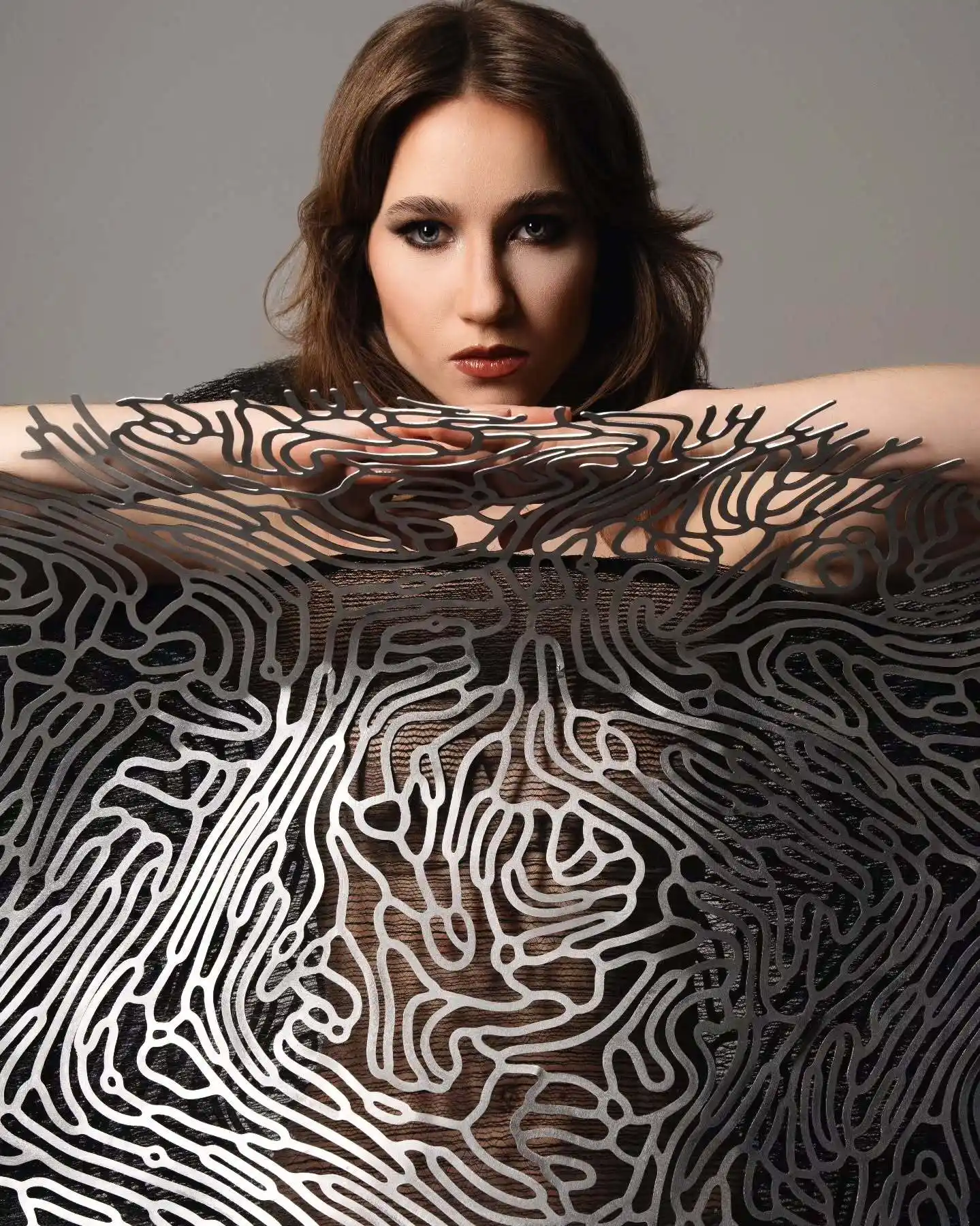
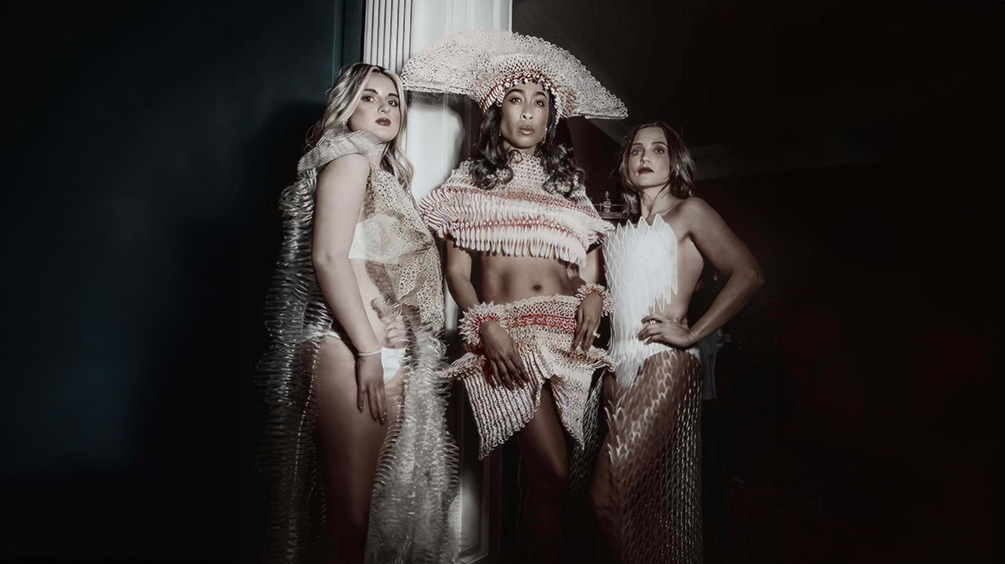
Day 2
3D Printed Dress Overview – Ripple
- Origin of the Idea
3D Printing Overview
- Hardware
- Software
- Design
Grasshopper Modelling
- Ripple Pattern Design
AI Pattern Generation & Grasshopper Modelling
- What is a Fractal?
- AI Fractal Pattern
- Fractal Design in Grasshopper
Slicer Setting
- Basic knowledge of 3D printing is recommended, but not required
- Material & Speed
- Printing a demo on the Bambu printer
Power of Custom GCode Presentation
- One Path Drawing
Custom GCode Demo
- Printing a demo on the Bambu printer
Build the Dress
- Aggregation Methods
- Customized Joinery
Break into the Fashion Industry – Discussion
- Education & Skills
- Working with Fabric & Mixed Media
- Studio, Transportation, Backstage
- London Fashion Week
Exhibition & Monetization – Discussion
- Networking
- Useful Resources
Balancing Architecture and Fashion – Discussion
Q&A
Bonus: Selected student designs will be printed in real-time during the workshop!
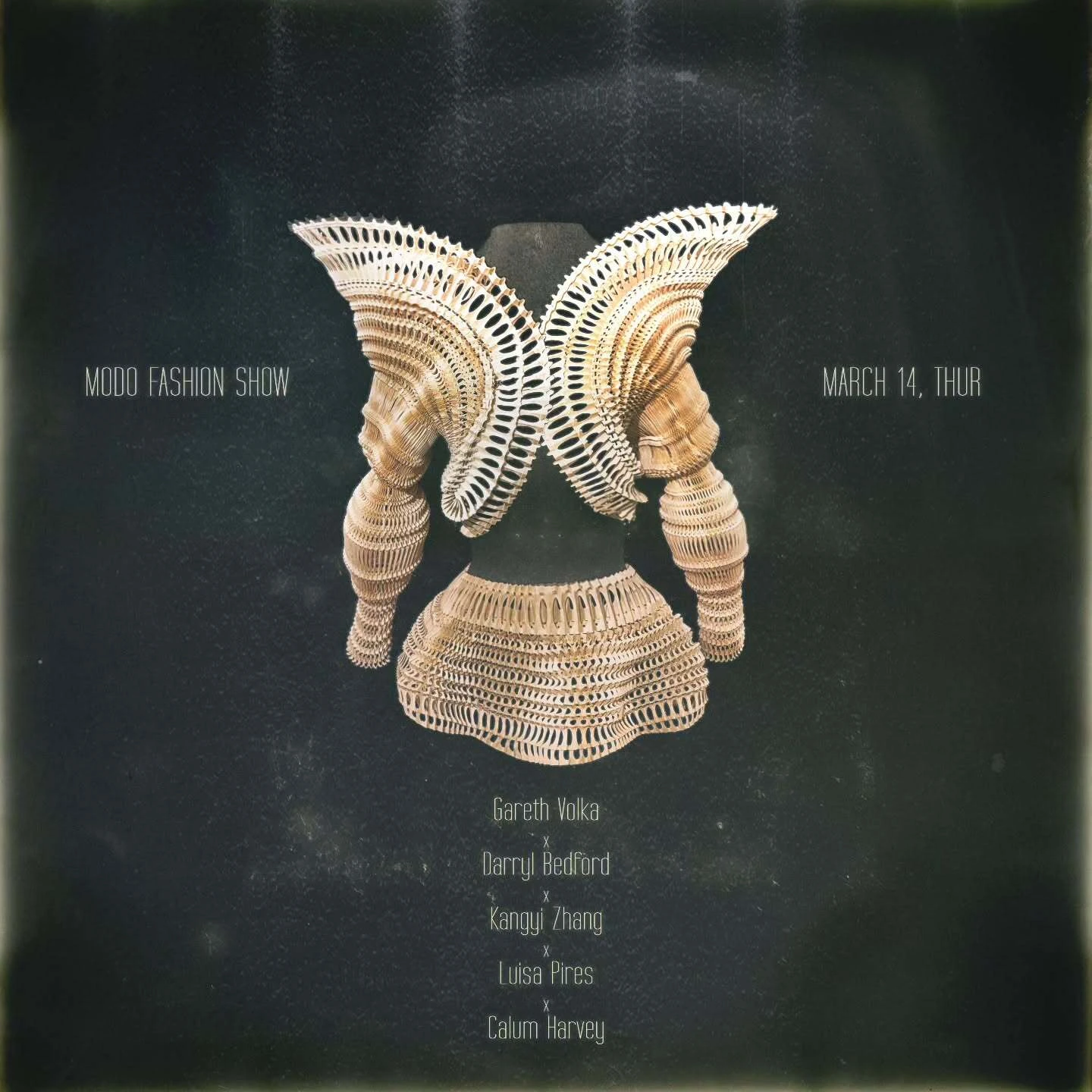
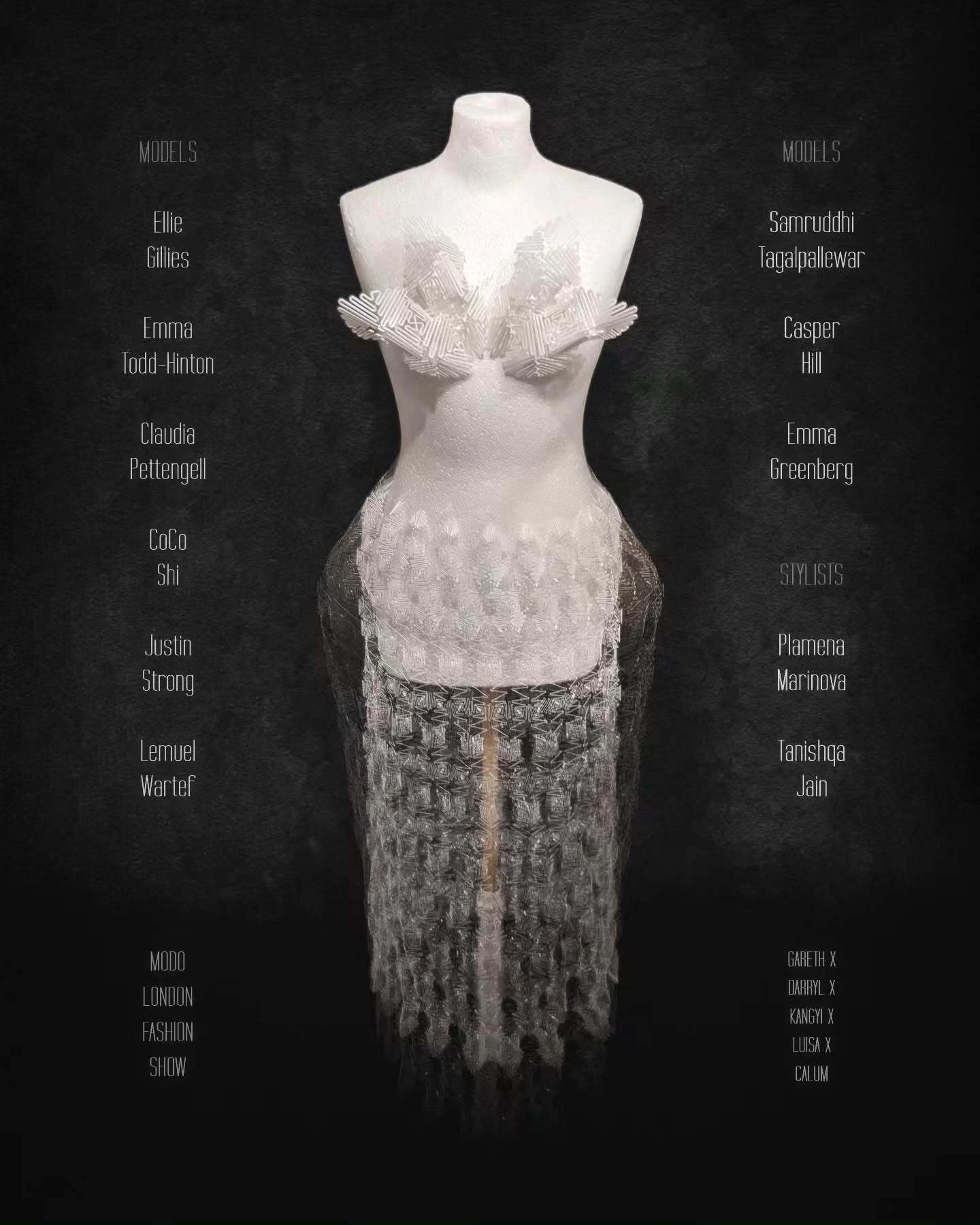
Software &
Workshop Notes:
- Selected student designs will be printed in real-time during the workshop
- Please ensure you have all the software installed before the workshop starts. Software installation is NOT a part of the workshop.
- No prior experience in fashion, coding, or 3D printing is required. All tools, scripts, and guidance will be provided to you.
- Basic Rhino, Grasshopper Knowledge Required
- Basic 3D Printing Knowledge Recommended but not Required
- 3D Printing Hardware Recommended but not Required
Instructor:
Gareth Volka

Gareth Volka is a London-based architect and fashion designer. His eponymous couture brand explores the intersection of fashion, computation, digital fabrication, materiality, and sustainability, drawing on years of research into topics such as generative algorithms, free-form 3D printing, programmable matter, biomimetic robotics, and biomaterials. His designs often build narratives around nature and sensuality, brought to life through ingenuity and craftsmanship.
Important Notes:
- The “Architectural Fashion: AI & 3D Printing” Studio workshop by PAACADEMY will start at 14:00 (GMT) on Saturday, July 26th, 2025.
- Total sessions: 2 Sessions
- The teaching duration per session will be 4 hours.
- Students will have time for a break between teaching hours.
- Each session and the entire studio will be recorded, and videos will be available for participants just a day after the class for unlimited time.
- PAACADEMY will provide a certificate of attendance.
- The studio has limited seats. Tickets are non-transferable & non-refundable. Please read carefully before you register.
Topic: Architectural Fashion: AI & 3D Printing
Date: July 26 – 27, 2025
Time: 14:00 – 18:00 GMT
Format: Online on Zoom
Duration: 2 Sessions (8 Hours)
Registration Deadline: July 25th, 2025
Total Seats: 50 seats
Difficulty: Beginner-Intermediate
Language: English
Certificate: Yes
General Registration: 100 EUR
Join free: with Full Access membership
Fee For Digital Members: 85 EUR (15% discount available only for Digital Members)
Organized By: PAACADEMY
Tutor: Gareth Volka
Recordings: Recordings will be available for all participants afterward indefinitely.
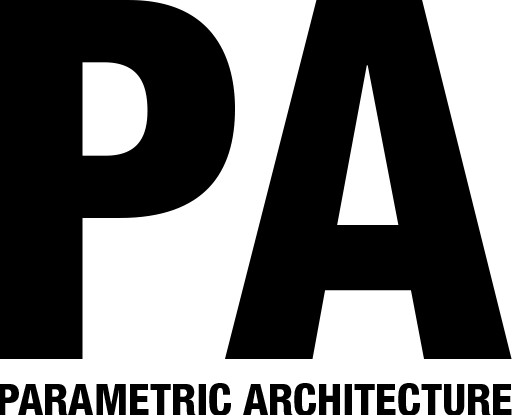




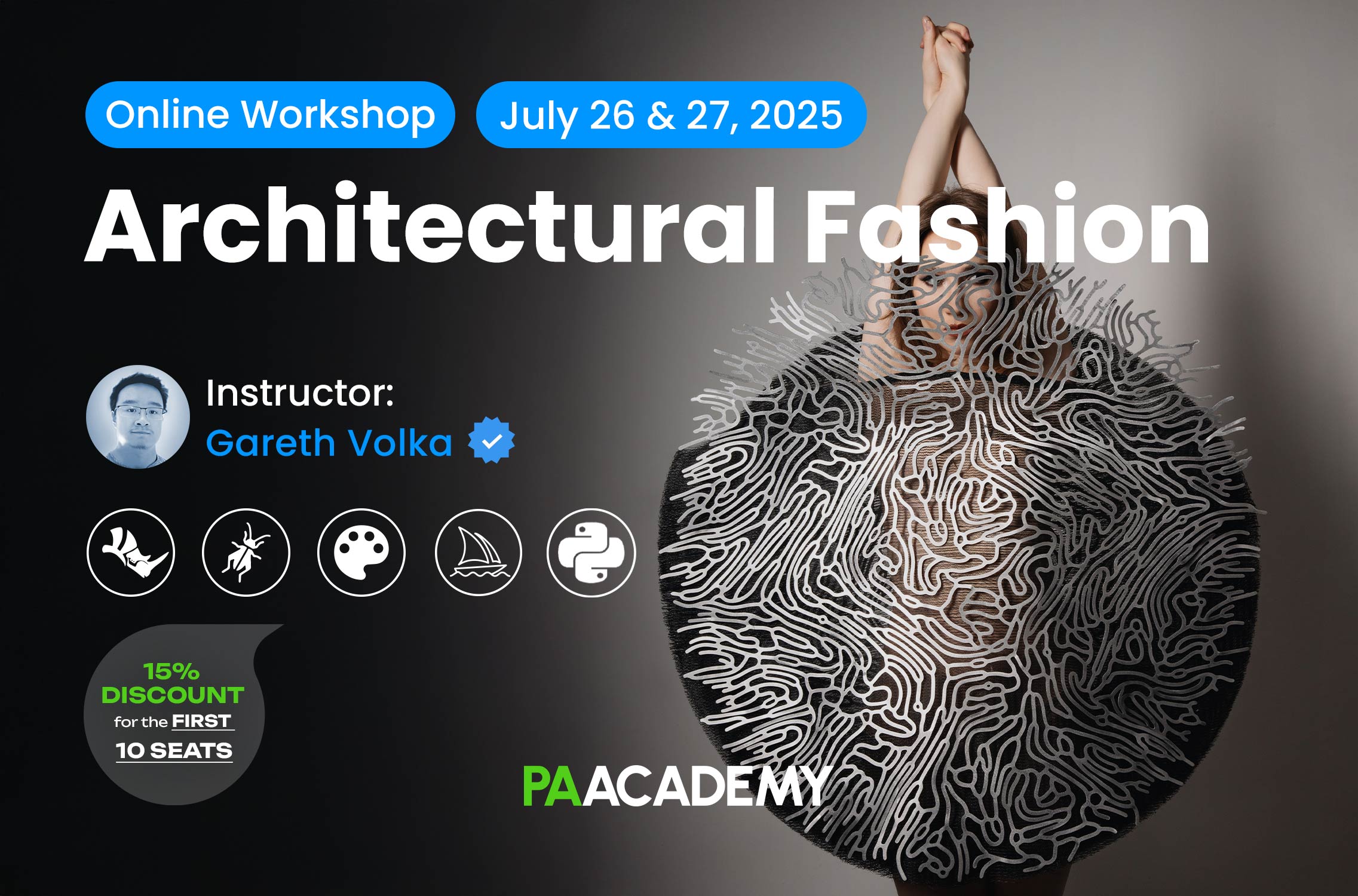
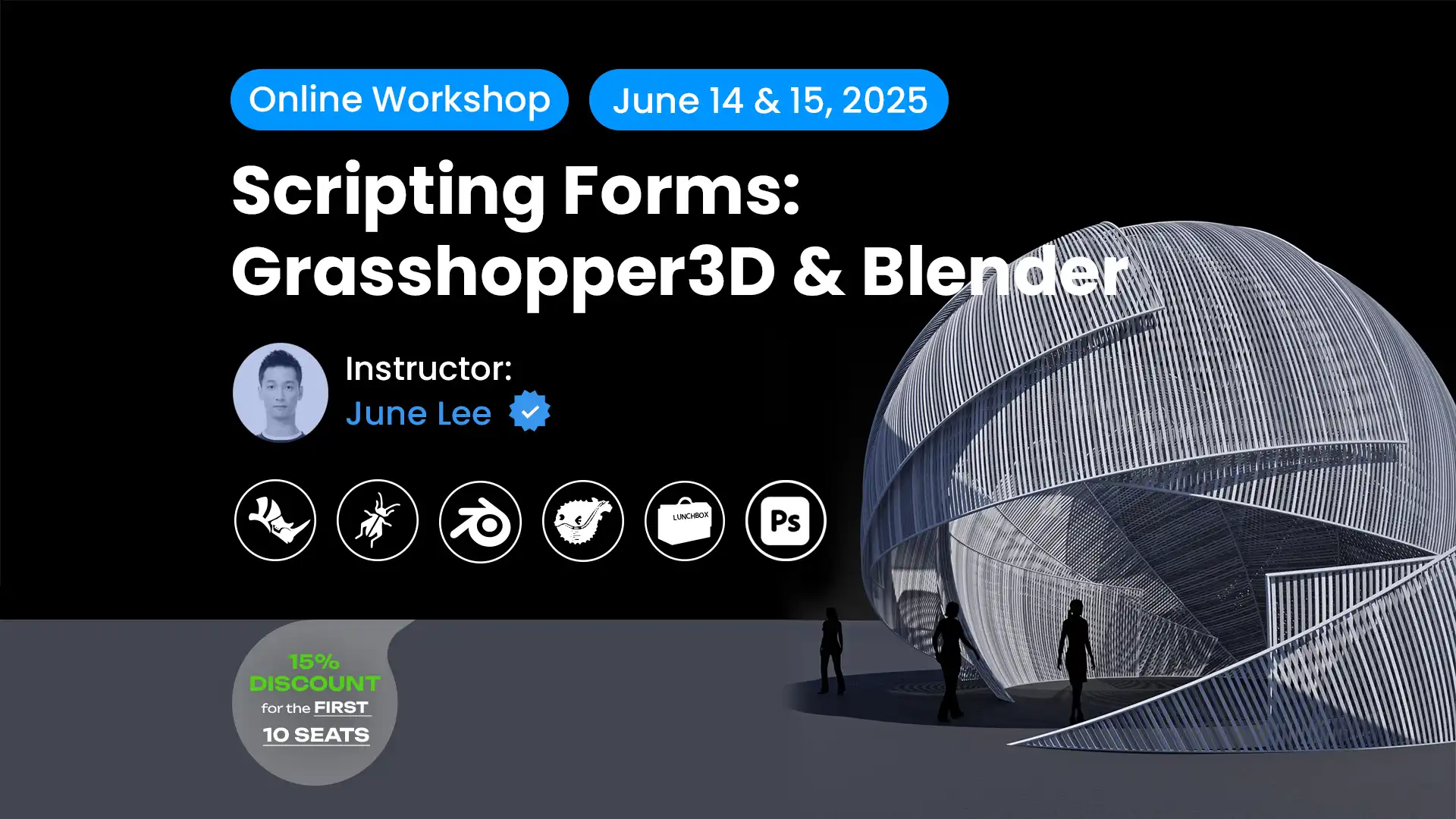
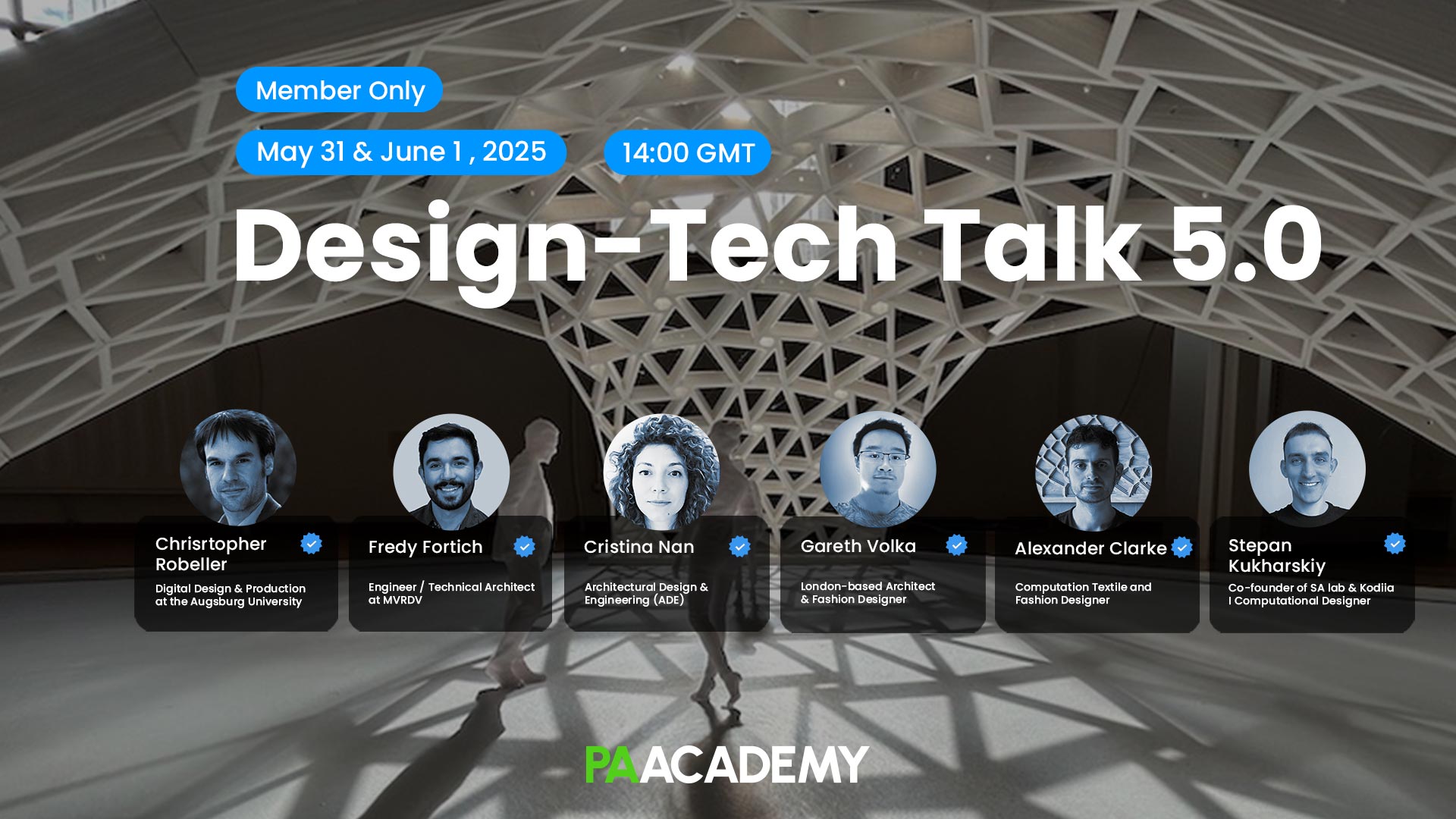
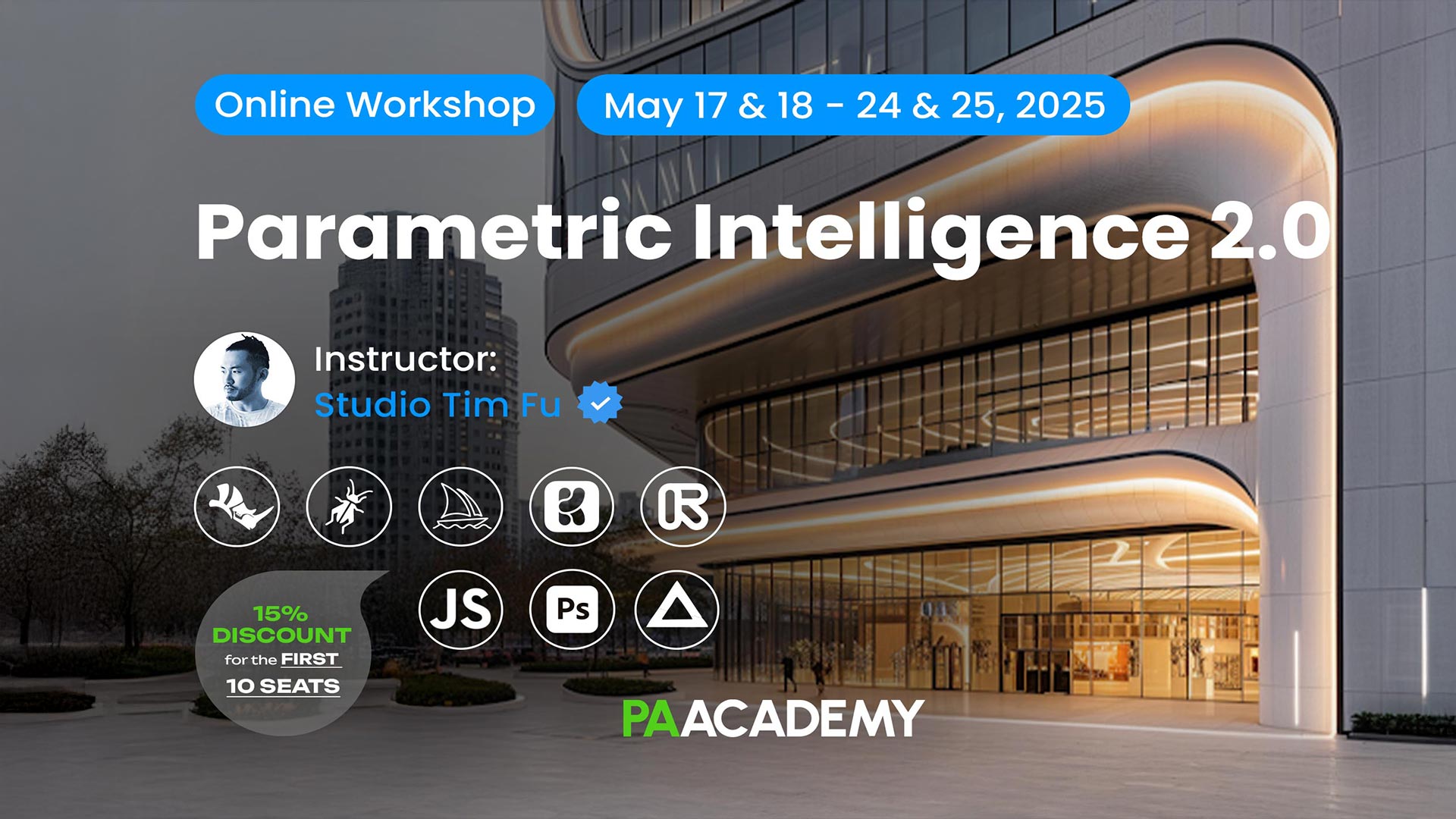



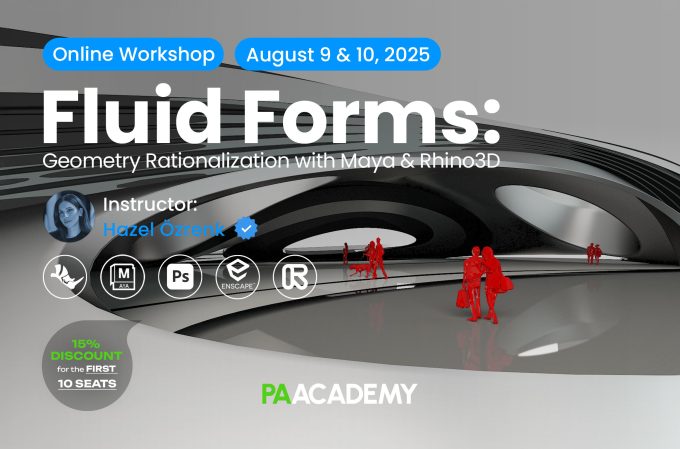
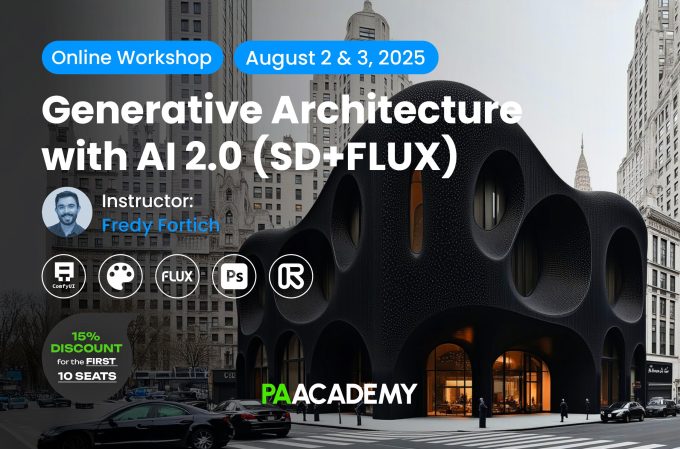





Leave a comment